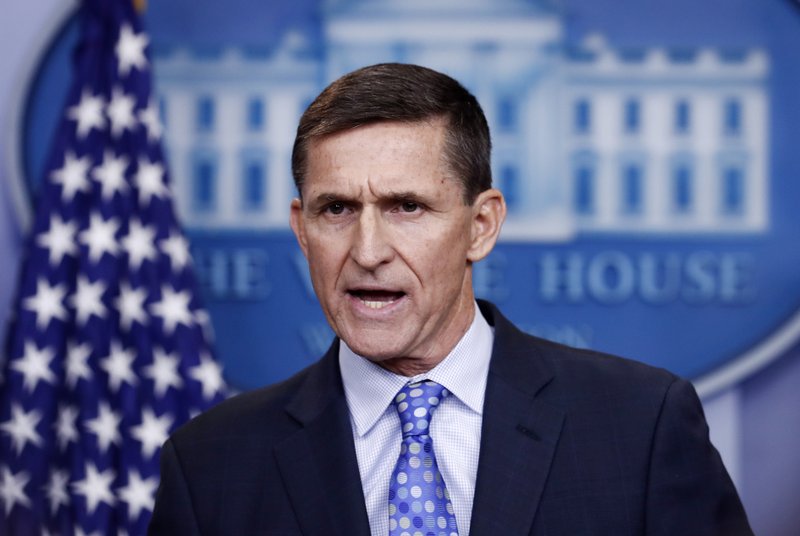WASHINGTON -- Senior White House officials pushed a project to share nuclear power technology with Saudi Arabia despite the objections of national security and ethics officials, according to a new congressional report citing whistleblowers within President Donald Trump's administration.
Lawmakers from both parties have expressed concerns that Saudi Arabia could develop nuclear weapons if the U.S. technology were transferred without proper safeguards.
The Democratic-led House oversight committee opened an investigation Tuesday into the claims by several unnamed whistleblowers who said they witnessed "abnormal acts" in the White House regarding the proposal to build dozens of nuclear reactors across the Middle Eastern kingdom.
The report raises concerns about whether some in a White House marked by "chaos, dysfunction and backbiting" sought to circumvent national security procedures to push a Saudi deal that could financially benefit close supporters of the president.
The report comes at a time when lawmakers are increasingly uneasy with the close relationship between the Trump administration and Saudi Arabia, which has raised alarms even among members of the president's party in Congress. Trump has made the kingdom a centerpiece of his foreign policy in the Middle East as he tries to further isolate Iran. In the process, he has brushed off criticism over the killing of Washington Post columnist Jamal Khashoggi and the Saudis' role in the war in Yemen.
According to the report, the nuclear effort was pushed by former national security adviser Michael Flynn, who was fired in early 2017. Derek Harvey, a National Security Council official brought in by Flynn, continued work on the proposal, which has remained under consideration by the Trump administration.
Rep. Elijah Cummings of Maryland, the chairman of the House Oversight and Reform Committee, announced the investigation Tuesday.
Relying on the whistleblower accounts, email communications and other documents, the committee's report details how the National Security Council and ethics officials repeatedly warned that the actions of Flynn and a senior aide could run afoul of federal conflicts-of-interest law and statutes governing the transfer of nuclear technology to foreign powers.
Flynn is awaiting sentencing for lying to the FBI in the Russia investigation.
On Tuesday, a person close to Flynn's legal team said that special counsel Robert Mueller's team has reviewed the matters raised in the congressional report, and no charges related to it have been filed. The person wasn't authorized to publicly discuss the ongoing investigation and thus spoke on condition of anonymity.
Congressional investigators are also looking into the role of Tom Barrack, a proponent of the nuclear proposal who ran Trump's presidential inaugural committee, which is under separate investigation by federal prosecutors in New York. Rick Gates, a former Barrack employee and cooperator in Mueller's investigation, was also involved in advocating for the nuclear proposal.
A spokesman for Barrack said in a statement that he will cooperate with the House probe.
According to the report, the whistleblowers went to the committee because they had concerns "about efforts inside the White House to rush the transfer of highly sensitive U.S. nuclear technology to Saudi Arabia in potential violation of the Atomic Energy Act and without review by Congress as required by law -- efforts that may be ongoing to this day."
A 2017 article by the nonprofit news outlet ProPublica detailed some of the concerns raised inside the National Security Council about the nuclear proposal -- known as the "Marshall Plan for the Middle East" -- advocated by a company called IP3 International.
IP3 is led by a group of retired U.S. military officers and national security officials, including retired Rear Adm. Michael Hewitt, retired Army Gen. Jack Keane and Bud McFarlane, a national security adviser under President Ronald Reagan. IP3 and other proponents of nuclear power in the Middle East argue that the U.S. needs to be involved because otherwise it will lose out to Russia, China and others on billions of dollars in business. They also say that U.S. involvement -- and the limits on nuclear fuel that come with it-- are essential to stem an arms race in the region.
Up until the month before he joined the Trump administration, Flynn listed himself on public documents as a consultant to a previous iteration of Hewitt's company advocating a similar nuclear power proposal, though the company told The Washington Post that Flynn was offered a role as an adviser but never formally came aboard.
Information for this article was contributed by Darlene Superville, Ben Fox, Stephen Braun, Jim Mustian and Jon Gambrell of The Associated Press.
A Section on 02/20/2019
